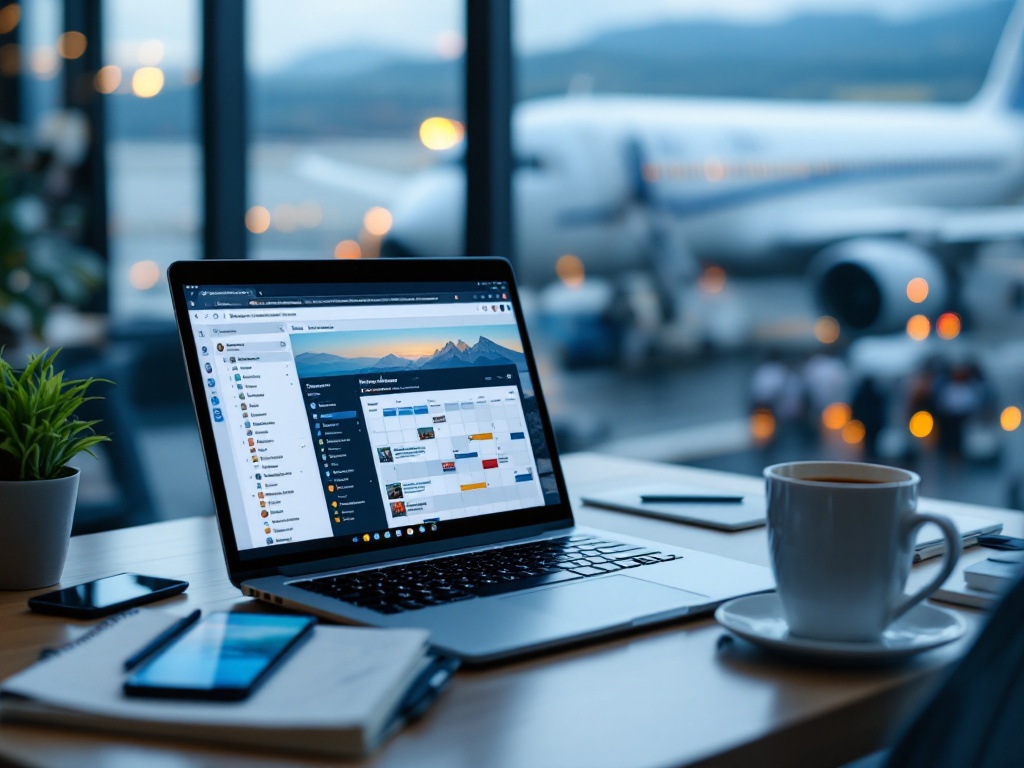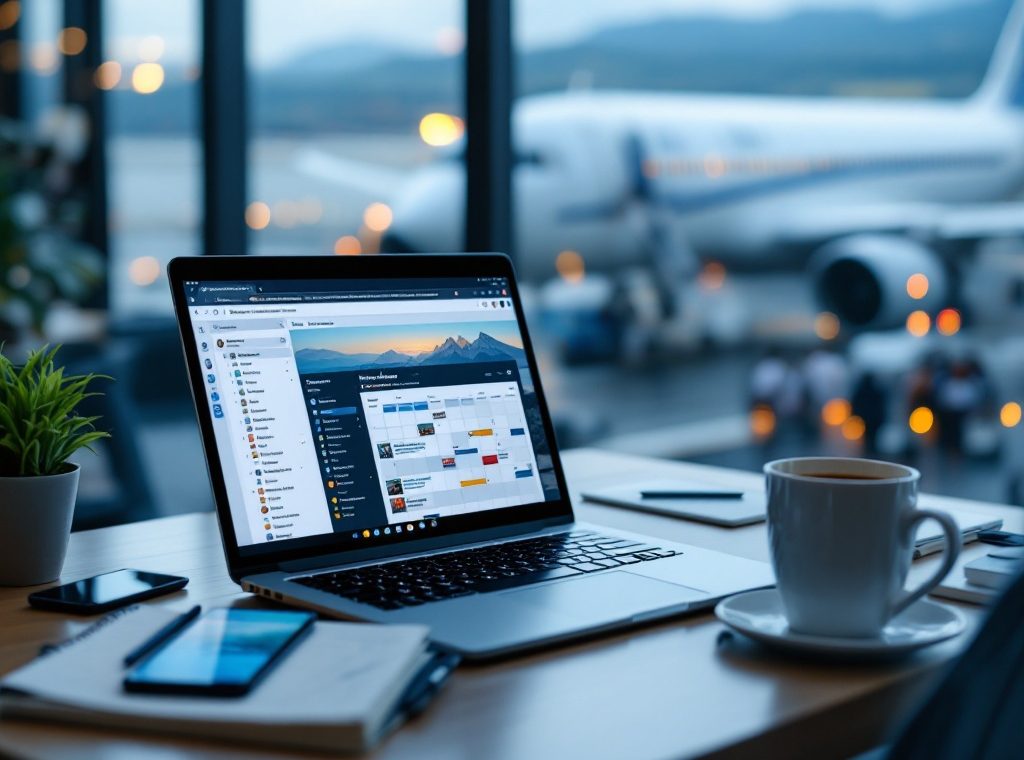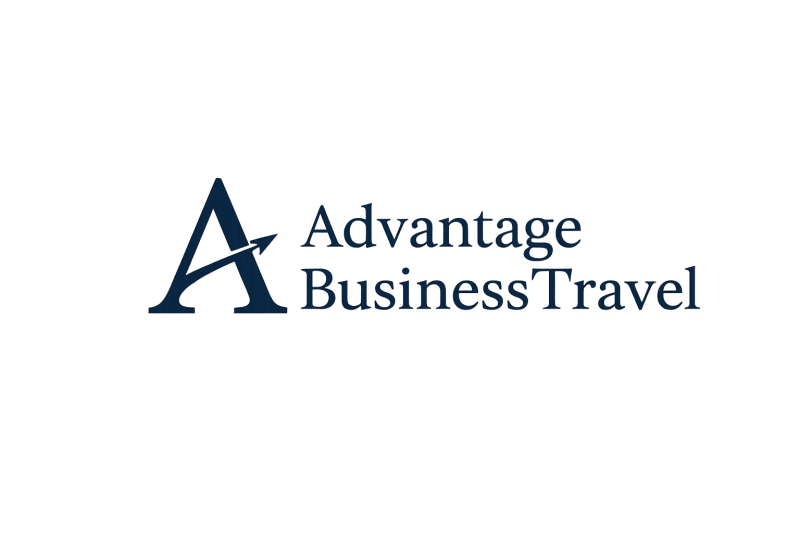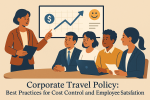Business Travel Planning for Maximum Productivity
Tired of unproductive business trips? Transform your travel experience with our expert guide. Learn how a clear company travel policy streamlines bookings and expenses, while strategic planning and smart technology boost efficiency. Discover how to manage unforeseen events, master budget management, and leverage networking opportunities for career advancement. Unlock the secrets to a successful and productive business trip – read on!
Important information

- Establish a clear company travel policy for booking, expenses, and approvals.
- Plan strategically: define trip objectives, create a detailed itinerary and budget, and be prepared for unexpected disruptions.
- Utilize technology like travel management software, digital document management, and communication tools for efficiency.
- Maximize productivity by prioritizing tasks, minimizing distractions, and leveraging travel time effectively.
- Network strategically during business trips to build relationships and advance your career.
Understanding Business Travel Planning for Maximum Productivity
Start with a clear company travel policy. This will streamline bookings, accommodations, meetings, and expense tracking, ensuring compliance and efficiency.
Plan strategically. Develop detailed itineraries and budgets to manage time and resources effectively.
Use technology to your advantage. Leverage travel management software and communication tools to simplify arrangements and enhance productivity.
Be prepared for the unexpected. Anticipate potential travel disruptions and have contingency plans in place to minimize stress and maintain productivity.
The Importance of Planning and Organization
Start by efficiently organizing flights, accommodations, meetings, and other key tasks.
A detailed itinerary is crucial for managing time and ensuring smooth transitions between activities.
When choosing accommodations, prioritize amenities like reliable Wi-Fi and a comfortable workspace to maximize your productivity.
Pack light, focusing only on essentials to minimize baggage hassles and increase mobility.
Key Components of a Corporate Travel Policy
A robust corporate travel policy is essential for guiding employees on all aspects of business trips. This policy should cover everything from booking procedures and preferred suppliers to expense guidelines and approvals. It must also detail the process for booking travel outside the standard policy, including extensions and personal travel arrangements. Crucially, the policy must cover insurance, emergency procedures, and important safety protocols, such as preferred transportation methods. The policy should also define budgeting limits and expense reporting procedures, along with destination-specific safety advice. Adherence to legal and regulatory requirements is paramount.
Booking and Suppliers
- Booking procedures,
- Preferred suppliers,
- Out-of-policy booking process (extensions, personal travel).
Expenses and Approvals
- Expense guidelines,
- Approval processes,
- Budgeting limits and expense reporting.
Safety and Security
- Insurance coverage,
- Emergency procedures,
- Safety protocols (transportation).
Legal and Other
- Destination-specific safety advice,
- Legal and regulatory compliance.
For easy access and comprehension, present this information in a digestible, concise format.
Strategic Planning for a Successful Business Trip
Planning a productive business trip requires a strategic approach. First, define clear objectives to identify your desired outcomes. Next, create a detailed itinerary that includes meetings, locations, and travel times. Then, establish a realistic budget encompassing flights, accommodation, meals, and local transportation. It’s also crucial to plan for contingencies, such as flight delays or cancellations. Secure travel insurance and build buffer time into a flexible itinerary for added safeguards. Additionally, consider time zone differences to optimize your schedule. Finally, prioritize tasks by importance to ensure a focused and successful trip.
Define clear objectives to identify your desired outcomes.
Create a detailed itinerary that includes meetings, locations, and travel times.
Establish a realistic budget encompassing flights, accommodation, meals, and local transportation.
Plan for contingencies, such as flight delays or cancellations.
Secure travel insurance and build buffer time into a flexible itinerary for added safeguards.
Consider time zone differences to optimize your schedule.
Prioritize tasks by importance to ensure a focused and successful trip.
Flexibility in Travel Plans and Itinerary Adjustments
Business travel is often unpredictable. Flights get delayed, meetings are rescheduled, and weather can throw a wrench in your plans. A flexible itinerary helps you adapt to these disruptions, minimizing their impact and maximizing your productivity. To build this flexibility, consider the following:
- booking alternative flights,
- scheduling meetings with adjustable times,
- including buffer periods in your itinerary.
This way, you’re prepared for the unexpected.
Preparing for Unforeseen Events and Emergencies
Safeguard essential documents like passports and itineraries.
Keep your contact information readily available, including numbers for your company, travel providers, and local authorities.
Anticipate potential travel disruptions, such as flight delays or cancellations, by considering travel insurance.
A cloud-based travel management platform can prove invaluable for managing changes and facilitating communication, especially during unforeseen circumstances.
Effective Budget Management in Business Travel
Effectively manage your travel budget by reviewing past spending habits and reclaiming unused credits. Leverage global buying power for better rates and utilize dynamic budgeting with real-time data for greater efficiency. Negotiate better rates with suppliers to significantly reduce costs. Regularly review and adjust your budget as needed.
- Review past spending and reclaim unused credits.
- Use global buying power for better rates.
- Utilize dynamic budgeting with real-time data.
- Negotiate better rates with suppliers.
- Regularly review and adjust your budget.
For additional savings, book flights and accommodations in advance. Create a detailed itinerary with all meetings and essential tasks. Select accommodations with necessary amenities and pack light to avoid baggage fees. Employ expense tracking apps to monitor spending and ensure compliance with company travel policies.
- Book flights and accommodations in advance.
- Create a detailed itinerary.
- Select accommodations with needed amenities.
- Pack light to avoid baggage fees.
- Use expense tracking apps.
Strategies for Managing Travel Budgets
Save on travel with these smart tips:
Set a realistic travel budget and track your expenses to stay within your limits.
Consider budget-friendly accommodations, such as Airbnb, for lodging.
Combine business and leisure travel (“bleisure”) to get the most out of your vacation budget.
Join travel rewards programs to earn discounts and upgrades.
Negotiate corporate rates with hotels and airlines to reduce costs.
Pack light to avoid baggage fees, saving you money.
Use public transport or ride-sharing services instead of taxis for more affordable transportation.
Dine at local restaurants for authentic and budget-friendly meals.
Connect to free Wi-Fi to avoid roaming charges and stay connected affordably.
Cost-Saving Measures and Early Bookings
Secure the best prices by reserving your flights and accommodations well in advance, as costs tend to rise closer to your departure date. Booking early also gives you a wider selection of preferred flight times and hotels. Leveraging corporate discounts and loyalty programs can significantly reduce expenses. Using a travel management platform streamlines the process and helps integrate these cost-saving measures.
Utilizing Technology for Enhanced Travel Efficiency
Travel Management Software
Streamline your business trips with travel management software. Simplify bookings and expense tracking, centralize travel data, automate approvals, and get robust reporting with popular options like Concur Travel, SAP Concur, and Egencia.
Digital Document Management
Eliminate paper clutter with digital document management. Ensure organized and accessible files, and enjoy secure access to travel documents from anywhere with cloud storage services such as Google Drive, Dropbox, and OneDrive.
Effective Communication Tools
Stay connected while traveling with effective communication tools. Boost your productivity on the go with messaging, video conferencing, and file sharing through platforms like Slack, Microsoft Teams, and Zoom.
Choosing the Right Travel Management Software
An intuitive interface simplifies booking for everyone, offering a wide selection of flights, hotels, and ground transportation.
Real-time data and reporting provide spending insights and highlight potential savings.
Seamless integration with expense systems streamlines reimbursements.
Automated policy compliance keeps travel within budget and adheres to company guidelines.
24/7 traveler support addresses any travel issues that may arise.
Discounts and exclusive rates maximize cost savings, while duty of care features prioritize traveler safety.
By considering these factors, you can select the best travel management solution for your needs.
The Role of Digital Document Management
Manage your essential travel documents, such as itineraries, boarding passes, and visas, with a digital document management system. Cloud-based access allows retrieval from any device, protecting your vital records from loss or damage. This system streamlines travel, simplifying check-in, customs procedures, and reducing stress. Additionally, readily available digital documents simplify expense reporting and other administrative tasks upon your return.
Communication Tools to Stay Connected
Staying connected while traveling is easier than ever. Essential communication tools like email, messaging apps (such as Slack or WhatsApp), and video conferencing platforms (like Zoom or Microsoft Teams) allow you to stay in touch with colleagues and clients. For reliable internet access, consider using a mobile hotspot or purchasing a local SIM card. Using a VPN adds extra security, especially when using public or company networks, by protecting your data. Regular check-ins with colleagues and clients are essential for boosting productivity and staying informed. Stay connected and productive no matter where your travels take you.
Building Detailed Itineraries for Time Efficiency
A well-planned itinerary is essential for any trip. Include flight details, hotel confirmations, and ground transportation arrangements. Don’t forget meeting schedules, contact information, and planned meal times. Adding weather forecasts and recommending local attractions enhances the traveler’s experience. Links to important documents and emergency contacts ensure preparedness. Finally, build in some flexibility for unexpected changes.
- flight details,
- hotel confirmations,
- ground transportation arrangements,
- meeting schedules,
- contact information,
- planned meal times,
- weather forecasts,
- recommendations for local attractions,
- links to important documents,
- emergency contacts.
International travel often presents time zone challenges. Adjusting sleep schedules beforehand can minimize jet lag. Scheduling meetings with time zones in mind boosts productivity. Time zone converters and clearly stated times in communications prevent confusion. Be mindful of local business hours and customs to demonstrate professionalism.
- adjust sleep schedules to minimize jet lag,
- schedule meetings considering time zones to boost productivity,
- use time zone converters and clearly state times to prevent confusion,
- be mindful of local business hours and customs.
Creating an Effective Travel Itinerary
Planning a successful business trip involves several key steps.
Start with your flight details. Note your arrival and departure times, and ensure your accommodations are booked. Pre-arrange ground transportation to and from the airport and for getting around during your trip.
Outline your business schedule. Include meetings, conferences, and other activities. Compile contact information for business associates, clients, and local emergency services. Check the weather forecast and any visa or customs requirements.
Factor in essential personal time. Allocate time for meals and breaks throughout your trip. Consider potential networking opportunities that may arise.
Remember to be flexible. Unexpected delays and changes can occur, so build some flexibility into your plan to accommodate unforeseen circumstances.
Time Zone Management and Its Impacts
Crossing time zones can disrupt your sleep and increase stress, impacting your work.
Adjusting your schedule to your destination’s local time can significantly minimize these effects.
Time zone converters are valuable for scheduling meetings across different locations.
Planning for jet lag recovery is crucial for maintaining alertness, focus, and overall trip enjoyment.
Maximizing Productivity and Networking Opportunities
Boost your productivity on business trips by setting clear objectives and prioritizing tasks. Dedicate specific times for work and minimize distractions by using noise-canceling headphones in a quiet workspace. Utilize travel time effectively by drafting emails or reviewing documents.
Business travel offers excellent networking opportunities. Attending industry conferences and events allows you to connect with fellow travelers and attendees. Participate in networking sessions and social gatherings, exchange business cards, and follow up afterward. Leverage LinkedIn to connect and nurture these potentially career-boosting relationships. You could even find a mentor or gain valuable industry knowledge.
Strategies for Productivity During Business Travel
Maximize your productivity by prioritizing key tasks.
Leverage travel time effectively by planning your itinerary to minimize transit between meetings.
Stay connected with your team while traveling.
Schedule regular breaks for rest and exercise to prevent burnout.
Pack light, bringing only essential items.
Utilize technology for booking and managing expenses to save time and reduce hassle.
Travel apps can streamline your itinerary and track expenses effortlessly.
Noise-canceling headphones can create a focused work environment, but remember to remain aware of your surroundings.
Packing cubes are a great way to optimize luggage space.
Leveraging Networking for Career Advancement
Business travel offers powerful networking opportunities, boosting your career and professional growth. Building relationships with colleagues and clients strengthens your network. Conferences, meetings, or even casual conversations can create valuable connections, leading to new business and enriching future trips.
















